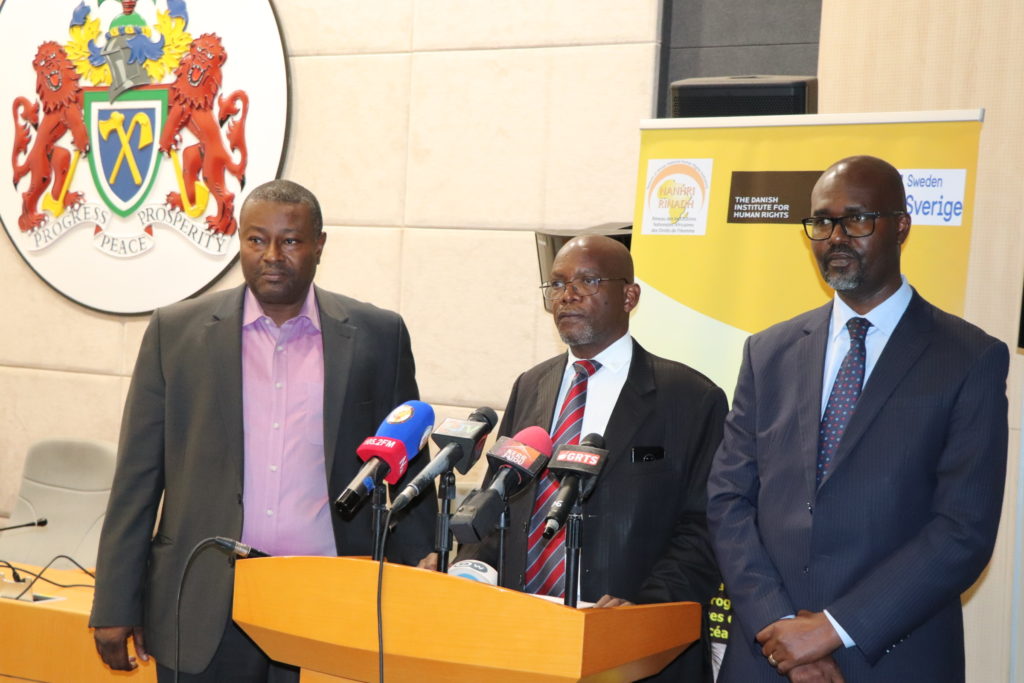NANHRI Says Human Rights Situation Is No Better In Africa, After 40 Years Of African Charter

(PC: NANHRI)
By Landing Ceesay
The Network of African National Human Rights Institutions, (NANHRI) said after 40 years of celebrating the African Charter, it is ‘regrettable’ that the human rights situation is no better in Africa.
“The African Charter on Human and Peoples’ Rights, in its preamble and various articles, calls on States to guarantee full enjoyment of economic, social and cultural and civil and political rights. Constitutions and other national legal provisions in most States complement the African Charter through specific frameworks of monitoring and redress to violations.
“But 40 years of celebrating the African Charter, it is regrettable that the human rights situation is no better in Africa. It has also contributed to current armed conflicts in Africa. This worsening situation not only threatens the achievement of the Sustainable Development Goals of the United Nations- eight years to their fulfillment- but also the African Union Agenda 2063,” Gilbert Sebihogo, Executive Director of NANHRI said in a joint statement.
Mr. Sebihogo further stated that their study is also launched when the continent has embarked on implementing the Africa Continental Free Trade Agreement- a framework that seeks to harmonize how the continent collectively trades and manages its resources for the benefit of the people through commerce and industry.
He added that Business and human rights and sustainable oceans, and indeed all the Seven Aspirations of Agenda 2063 and the 17 goals of Agenda 2030 must guide any undertakings of integrating trade on the continent.
“For this to happen, the continent requires firm and binding legal frameworks for a human rights-based approach covering all factors of production- land, capital, labour among others – the extractive, processing and service sectors. One of such frameworks is the African Policy on Business and Human Rights, which has stalled at the draft stage. We also note that only two countries in Africa- Kenya and Uganda- have developed national action plans on implementation of the UN Guiding Principles on Business and Human Rights through consultations with State and non-State actors,” he said.
NANHRI and its partners call on the African Union, through the States, to expedite and adopt a harmonised African Union Policy Framework on Business and Human Rights; saying this will provide a binding legal basis requiring business entities to guarantee enjoyment of human rights in all aspects of their work.
“States to work with National Human Rights Institutions in developing National Action Plans (NAP) for the implementation of the UN Guiding Principles on Business and Human Rights. The States must also set aside funds for implementation of these NAPs; States, in partnership with NHRIs, to investigate further and prosecute business entities violating human rights in the production chain, including extractive, processing and service industries for accountability,” he said.
The Network of African National Human Rights Institutions, the National Human Rights Commission of The Gambia, the African Commission on Human and Peoples’ Rights, the Office of the High Commissioner for Human Rights and partners, held a press briefing on the 4th National Human Rights Institutions Forum on Business and Human Rights which is taking place in the Gambia.
The theme of the Fourth NHRIs Forum isintegrating a Protect, Respect, and Remedy Approach to Business and Human Rights in Africa, as a Lever towards the Acceleration of Human, Social, and Economic Capital Development.


Comments are closed.